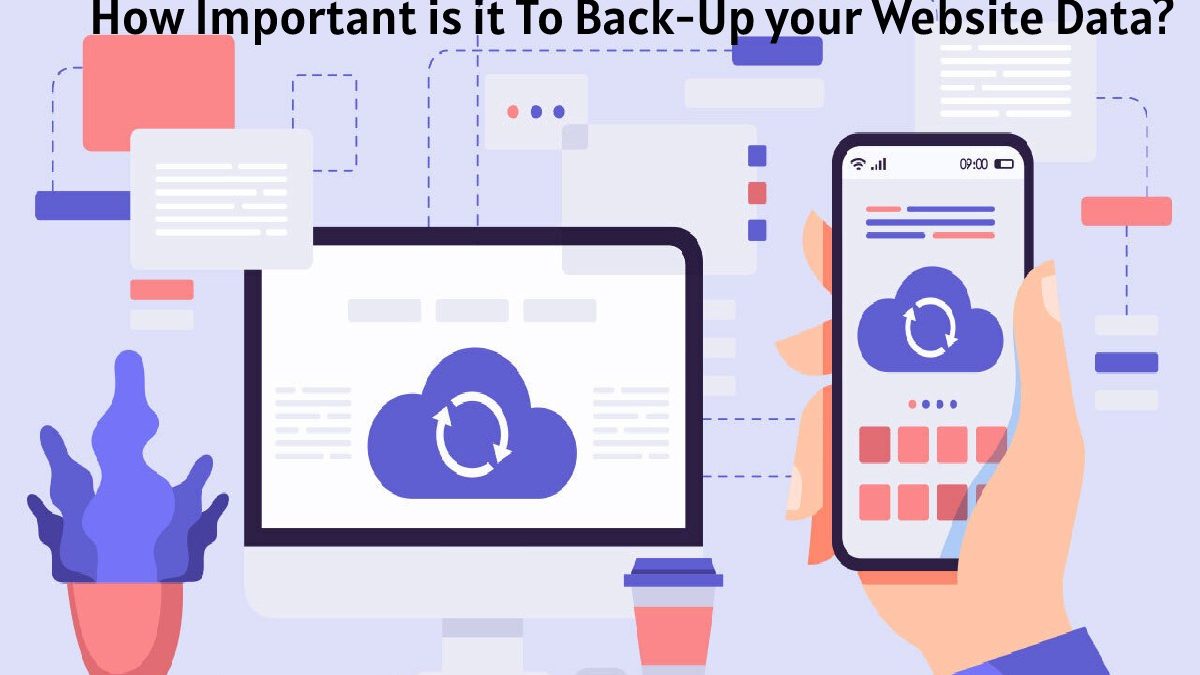Table of Contents
Introduction
Back-Up your Website Data – Creating a website is not difficult in 2021, especially with the right tools. Still, the problem is to keep it safe, and as the proportion of businesses and websites increases, the balance of hackers increases. So what do you do to protect your website?
In fact, there are many ways to do this, from activating the firewall to restricting user access and others, but what’s more critical is data backup!
What’s the Backup?
The name suggests complete content. For example, a backup is a backup of your online development, including your website files, related databases, delays, templates, and everything stored in your holding account.
You created a website utilizing WordPress, the world’s most general content administration system.
Websites created using WordPress rely on bhp and MySQL programming language, responsible for managing the link between files. In contrast, the second contains databases that store your underlying location information.
When you back up your data, you can choose between archived files only, databases, multimedia files, or the entire site’s content. Backing up the whole area has many benefits, the most important of which are:
Why do you Need to Back-up your Website Data?
While it is self-evident, many site owners ignore the backup of their sites and may believe that their small or medium-sized enterprises are immune to threats or do not constitute a booty for hackers.
Reduce Disruption
When people browse websites, they don’t like to wait long for the site page to appear, so it won’t go back to the site once the waiting time exceeds a few seconds.
Imagine owning a website, your site undervalued and many visitors leaving the site without returning. It would be unsatisfying if you didn’t have an alternative plan. If you notice the problem, you can restore a copy of your site that works well and give yourself time to identify the problem.
Avoiding Human Mistakes to Back-Up your Website Data
We may not need to admit it, but we are human lives and all brand mistakes. A slight alteration in your website can lead to compatibility issues and a decline in the whole system and may result in the loss of energy you have completed in previous days and weeks.
Avoid Making any Changes Before Backing Up the Site.
The number of websites continuously increases, and threats increase as hackers innovate to hack into hosting servers and websites.
Denial-of-service attacks, blind-force attacks, viruses, malware, and cyber inconvenience are all threats that site owners must consider. Even if you think your project is unattractive to hackers, you should prepare for the worst.
Backup also allows you to update extensions on your website or other new additions without affecting the site, primarily if you use content management systems such as WordPress, Joomla, etc., which rely heavily on plugins to improve the site.
How Many Times do you have to Back-Up your Website Data?
The answer is the more backups, the better.
You may think that backups occupy a lot of space from the server. But you won’t need hundreds of them, and it’s enough to keep a few modern copies.
Better yet, keep a backup of your website elsewhere away from the server that operates your website. So the hacker will not be able to destroy your information once it reaches the server.
In the end, we recommend keeping four or five recovery points to avoid risks and threats. Preferably backup daily if you are constantly reporting information.
Also Read: Kids Bedroom – How to Decorate a Relaxing Children’s Bedroom?

